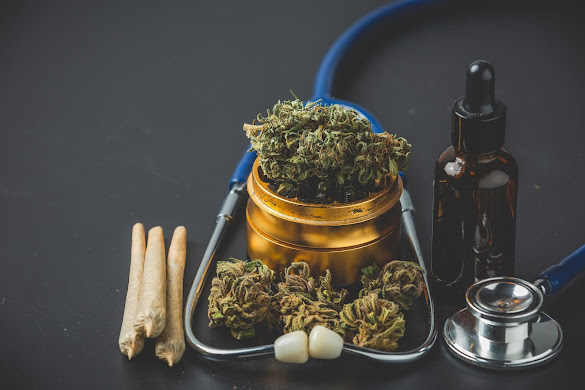Is Medical Marijuana a Viable Option to Tackle the Pain of Trigeminal Neuralgia?
What do you think is the worst pain one could endure? Well there are many anecdotal claims, also backed by medicine to indicate that Trigeminal Neuralgia is one of the most, if not the most painful conditions to befall someone. Granted there are other conditions that can be as painful, if not more than Trigeminal Neuralgia (TN). There are chronic joint pain that can be excruciating and can worsen as the pain tolerance gets reduced with old age.
While there have been many medications that are being used by patients to battle out such pains, most of these are opioids or benzodiazepines. Now as effective as they might be, there are a series of complications that come along by using them on a regular basis. There is one incentive that has been dodged for the longest of times, marijuana. Medical marijuana can be a much better alternative than the medications now being used without nearly as many of the complications and side effects that come along.
What is Trigeminal Neuralgia?
Causes of Trigeminal Neural
There can be many contributing factors leading to Trigeminal Neuralgia, the one common tie between them being how they put pressure on the nerves near the brain. Multiple Sclerosis can also lead to TN in some cases as the myelin sheath is deteriorated as a result. Even more rarely a vascular tear or a tumor can cause nerve compression, leading to pressure being applied on the trigeminal nerve. Spinal injuries and sinus issues may also lead to TN.
Medical Marijuana Steps in
Marijuana used medicinally has brought about a lot of changes in treating many symptoms and ailments ranging from chronic joint pain and anxiety to name a couple of the many. Marijuana has chemical compounds called cannabinoids in them that act as the major caregivers to those in pain and turmoil. CBD and THC are two of the most known cannabinoids to have been used medicinally.
How Does Cannabis Help?
CBD is known more for its restorative properties and is not accompanied by the ‘high’ associated with marijuana. It is CBD that is being and has more research to be done on after its initial success with people like in the case of chronic joint pains and depression. Cannabinoids attach or do not attach themselves to the receptors we have in our Endocannabinoid System to relieve pain and affect wellness.
There are of two types of receptors found in the system -
CB1 Receptors - These receptors are found in the central nervous system, pertaining to pain and relieving it.
CB2 Receptors - They are commonly found in the peripheral nervous system and regulate the immune system.
Endocannabinoids bind to either or both of the receptors as the need arises. The resulting effects depend on which one of the receptors was being approached. LIke CB1 receptors call in for cannabinoids to relieve pain, whereas the CB2 receptors call for help to reduce inflammation and respond to the immune system.
Other than that, CBD also acts as a neuroprotectant and slows down the degradation process of the myelin sheath. CBD has pronounced antinociceptive effects that can largely be responsible for helping with Trigeminal Neuralgia.
To get the most benefits from marijuana, having a medical marijuana card is highly recommended. Not because of the financial aid one gets through tax benefits, but also because of a wider range of products that can be accessed with the same. The following card can be used in both online and offline dispensaries. A cannabis doctor recommends this card after factoring many variables once you talk to them.




Comments
Post a Comment